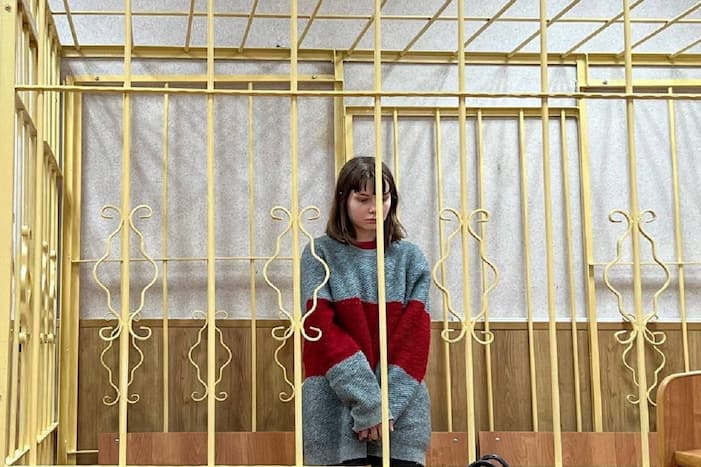In the U.S., we enjoy the protections of the First Amendment, particularly around political speech –– talking or writing about the wrongs that government and its agencies do. In Russia, as in many other autocratic legal/political systems, dissent is punished by the government, often severely. Punishing voices of dissent in Putin’s Russia is perfectly legal, and in fact some Russian citizens believe it is their duty to root out dissent as some sort of “infection” that could poison the body politic.
But the December 27 podcast from the New York Times, The Daily, spells out just how debilitating that punishing dissent can be.
Here are the first two paragraphs from that podcast episode:
“Days after Russia invaded Ukraine, the Kremlin made it a crime to oppose the war in public. Since then, it has waged a relentless campaign of repression, putting Russian citizens in jail for offenses as small as holding a poster or sharing a news article on social media.”
“Valerie Hopkins, an international correspondent for The Times, tells the story of Olesya Krivtsova, a 19-year-old student who faces up to 10 years in prison after posting on social media, and explains why the Russian government is so determined to silence those like her.”
Here’s the link to the podcast:
https://www.nytimes.com/2023/12/27/podcasts/the-daily/russia-dissent-update.html
Most readers of this PLBW blog are likely to have a “Western” view of Russia’s war against Ukraine. But unlike the Russian government’s “official line,” it is a view that is in line with international legal doctrine around “sovereignty” and “self-determination,” key concepts underlying the U.N. Charter from 1945. Indeed, until Russia’s invasion of Ukraine, no major power since 1945 has invaded another sovereign nation. (This excludes the brief foray that Saddam Hussein made into Kuwait back in 1991, an attempt that was quickly repelled by a coalition of the willing, headed by U.S. President George H.W. Bush.)
Punishing free speech can be harmful to a society for several reasons. Punishing free speech can stifles dissent and creates a culture of conformity, inhibiting necessary checks and balances in a well governed society. It allows those in power to stay in power, even when they abuse power, by controlling the narrative and limiting access to different perspectives and information that is unfavorable to the regime. Free speech is essential to a functioning democracy, as it allows citizens to engage in robust political discourse, and free speech powers change where change would be beneficial for society. By punishing free speech, Putin and other autocrats avoid being accountable for their actions, avoiding true scrutiny and the eventual imposition of a just decision by the citizens.
Punishing free speech is part and parcel of the authoritarian’s playbook. Even in nations considered “democracies,” free speech for the press and for the people can be limited. In Hungary, for example, Victor Orban has successfully limited freedom of speech and the press, which is now largely controlled by Orban’s ruling party.
In the U.S., there are many on “the right” who admire and would emulate Victor Orban, who is close to Vladimir Putin.
And, from a Reuters report in October, 2023:
Russian President Vladimir Putin and his closest ally among European Union leaders, Hungarian Prime Minister Viktor Orban, on Tuesday reaffirmed their commitment to bilateral ties amid international tensions over the war in Ukraine.
In the U.S., many in the GOP are following Donald Trump’s lead in holding back aid for Ukraine, essentially playing into Putin’s hands.
https://www.theguardian.com/world/2023/dec/12/ukraine-russia-aid-biden-zelenskiy
Finally, as we marvel at how much moral courage it takes for Russians to oppose an authoritarian, we must recognize that many people in the U.S. now use the Supreme Court’s quite liberal interpretations of the First Amendment to say outrageous and false things about the U.S. government, or U.S. elections.
Also, there are ongoing debates in the U.S. over how far “free speech” should go. In future blogs, we’ll discuss “hate speech” and whether the U.S. legal system allows hate speech that is perfectly legal, but wrong.
